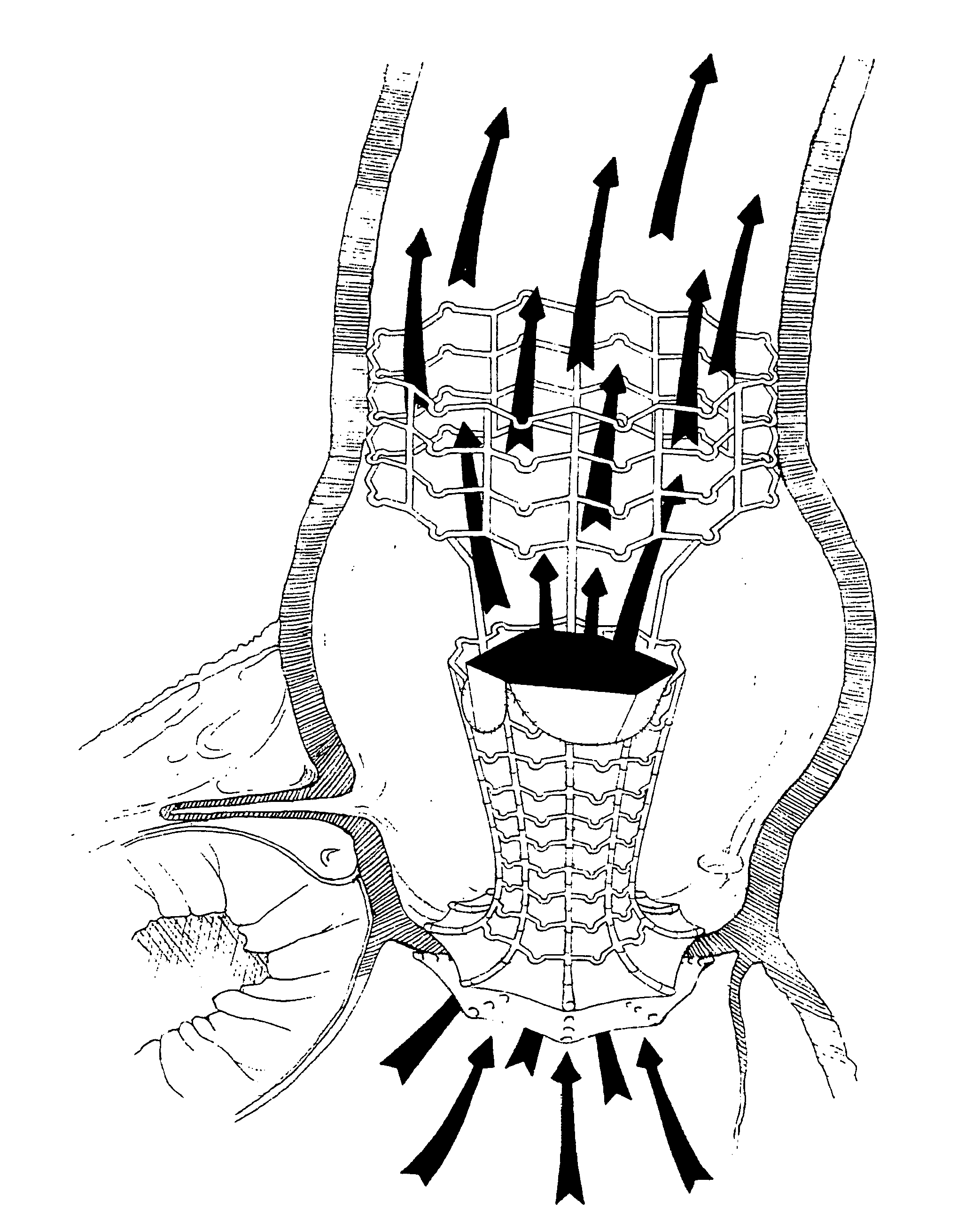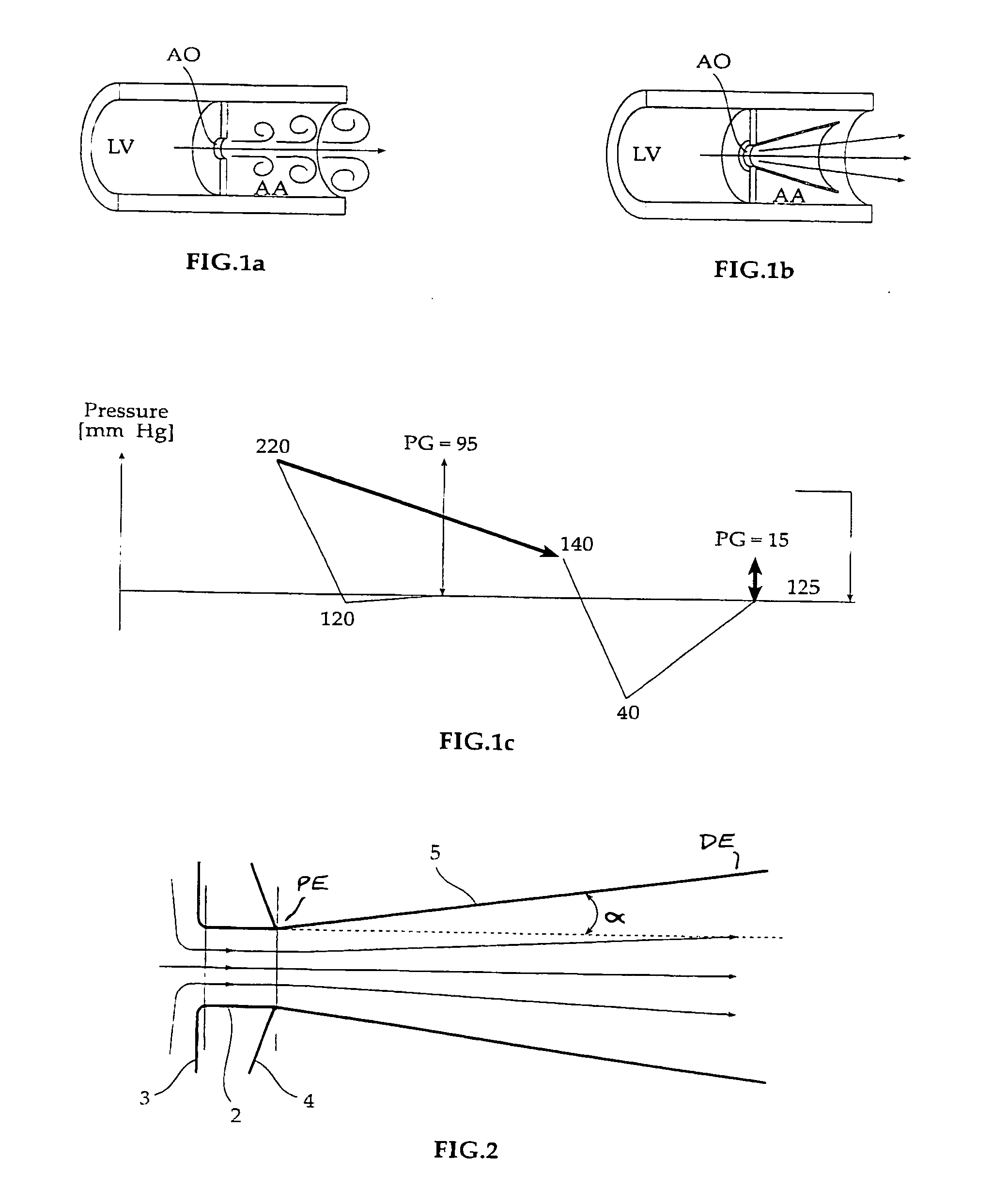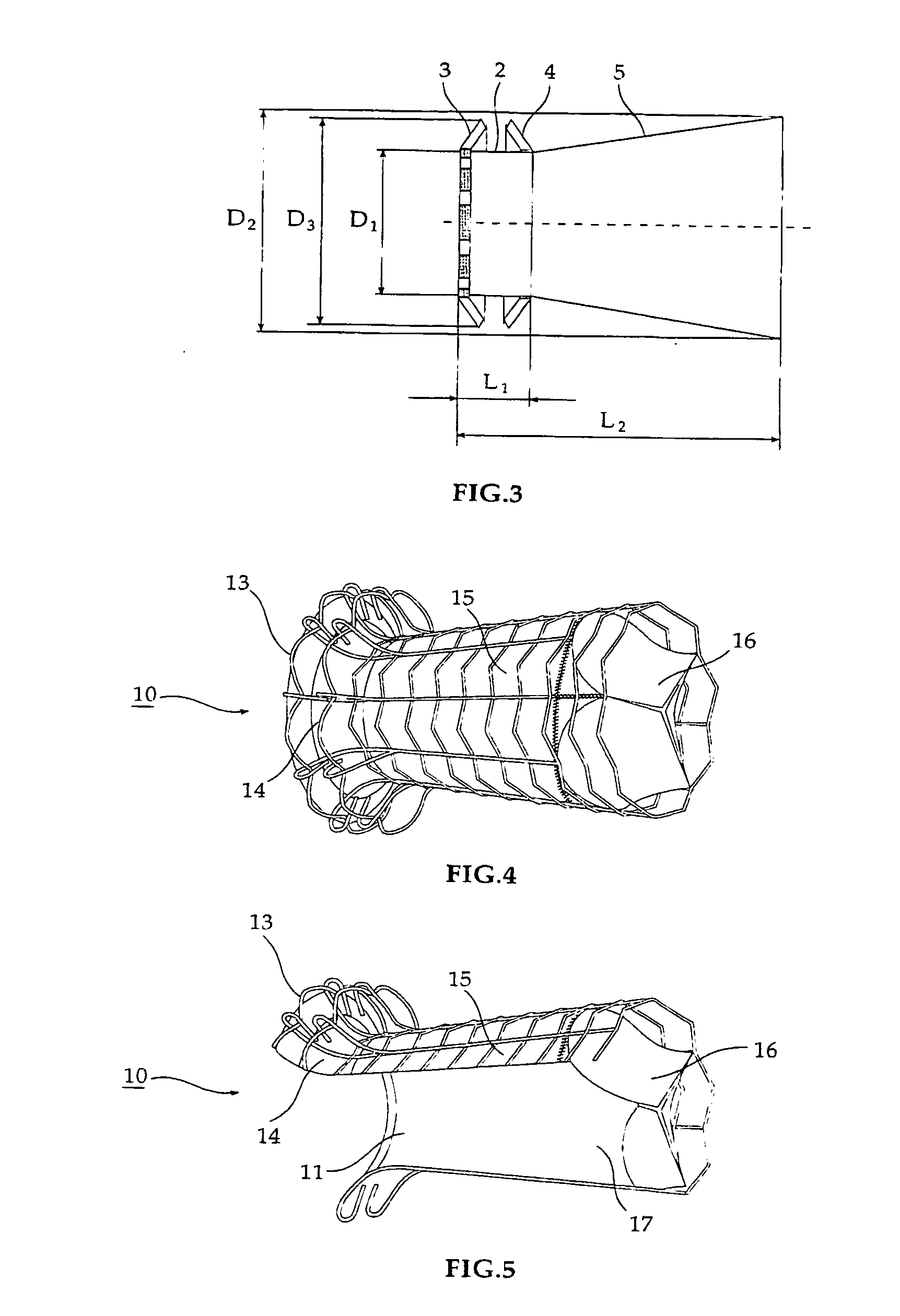Fluid flow prosthetic device
a prosthetic device and fluorescence technology, applied in the field of implantable prosthetic devices, can solve the problems of increased wall tension and myocardial oxygen demand, increased left ventricular systolic pressure, and significant pressure drop across the valv
- Summary
- Abstract
- Description
- Claims
- Application Information
AI Technical Summary
Benefits of technology
Problems solved by technology
Method used
Image
Examples
Embodiment Construction
[0036] Reference is now made to FIG. 2, which diagrammatically illustrates one non-limiting construction of a prosthetic device in accordance with the present invention, and FIGS. 1A-1C, which diagrammatically illustrate the manner in which such a prosthetic device may be used for alleviating the work load placed on the heart by an aortic valve suffering from significant aortic stenosis. It is noted that the present invention is not dependent upon any theory or explanation of the manner in which the blood flows in the circulatory system, and any explanation or theory is provided simply for the purposes of elucidation. It is also noted that the embodiments described in detail hereinbelow are only exemplary and the invention is not limited to these specific constructions.
[0037] The principles of flow regulation in the cardiovascular system may be similar to those in pipeline systems. Aortic pressure and cardiac output are regulated by the baroreceptor-system with its stretch-receptor...
PUM
 Login to View More
Login to View More Abstract
Description
Claims
Application Information
 Login to View More
Login to View More - R&D
- Intellectual Property
- Life Sciences
- Materials
- Tech Scout
- Unparalleled Data Quality
- Higher Quality Content
- 60% Fewer Hallucinations
Browse by: Latest US Patents, China's latest patents, Technical Efficacy Thesaurus, Application Domain, Technology Topic, Popular Technical Reports.
© 2025 PatSnap. All rights reserved.Legal|Privacy policy|Modern Slavery Act Transparency Statement|Sitemap|About US| Contact US: help@patsnap.com



